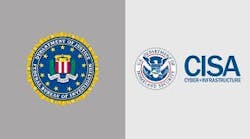Less than a week after the fifth anniversary of the Sept. 11, 2001 terrorist attacks, one of the largest antiterror drills ever in New England will test how public safety officials deal with some of their worst fears all at the same time.
The nightmare scenario starts with an explosion in a basement lab in Everett, jumps to a threat to the liquefied natural gas facility in Everett, and mushrooms to multiple explosions, one involving a radioactive "dirty bomb," inside the CambridgeSide Galleria mall, according to a memo obtained by the Globe yesterday.
Finally, as patrons flee the mall, at least one improvised explosive device is found at the nearby Lechmere MBTA station, according to the memo outlining Operation Poseidon, scheduled for the morning of Sunday, Sept. 17.
The drill, which will soon be announced to minimize public alarm, ends with a fictional 25 dead and 150 wounded.
Law enforcement officers, firefighters, and paramedics will re spond to each incident. An undetermined number of people will pretend to be customers at the mall, riders on the T, and possible terrorists.
Sponsored by the state Executive Office of Public Safety and Boston Mayor Thomas M. Menino's Office of Homeland Security, the exercise is designed to bring together federal, state, and local agencies, as well as hospitals and the National Guard, to coordinate and improve how they respond, communicate, and work together to tackle the fast-moving series of threats.
"It's really the best way to make sure everyone is working well together," said Peter Judge, spokesman for the Massachusetts Emergency Management Agency.
Law enforcement, military, federal, and emergency medical workers, as well as firefighters, will be tested on their response to a bombing in which there could be secondary devices in multiple locations and how they "identify potential suspects who may continue to linger in the area following an initial blast," the memo said.
Officials at the CambridgeSide Galleria said the exercise is scheduled to start around 4 a.m., well before the mall opens that day at 11 a.m. In addition, the mall's neighbors have been notified by the Cambridge Fire Department.
The last high-profile terrorism training event in Boston happened in June 2005 with the simulation of a terrorist hijacking of an airliner en route from Paris to Chicago, the first US drill involving the real-time intercept of a commercial airliner by military jets.
More than 50 federal, state, and local agencies participated in the $750,000 exercise, paid for by a federal homeland security grant. More than 80 volunteers, posing as hostages, spent two hours in the air. Once F-15 fighter jets forced the United Airlines plane to land at Logan International Airport, the hijackers detonated a "bomb" in the plane's cargo hold, "killed" a 14-year-old girl, and threw a dummy representing her body from the rear door. Police stormed the plane and arrested five terrorists, and the "injured" were sent to at least nine area hospitals.
Next month's exercise, also paid for by grants from the federal government, is expected to cost much more, with 81 state troopers being paid $78,000 in wages alone, said Andrew Plunkett, spokesman for the Executive Office of Public Safety.
State and city officials yesterday could not provide a total price tag or number of participants.
The exercise combines a threat to an LNG facility one of the Boston region's biggest vulnerabilities with a kind of attack that some homeland security specialists fear will be the next level of terrorism, based on events that have happened elsewhere.
The scenario begins when Everett police respond to a call from a citizen regarding suspicious activity at a home, possibly drug-related.
But as police close in on the home, a van with several men inside is seen leaving the area. This is followed by an explosion in the basement of the home, where police quickly find a laboratory.
Police find evidence suggesting that the Distrigas facility and an LNG tanker in Everett have been targeted by terrorists. The Mystic River becomes the focal point, and the Coast Guard secures the LNG terminal and tanker.
After Sept. 11, 2001, LNG facilities were identified as potential terrorist targets. Last week, Governor Mitt Romney ordered a review of security at LNG storage facilities statewide after intruders broke into a KeySpan storage facility in Lynn.
Julie Vitek, a spokeswoman for Distrigas, said the company conducts at least one safety or security drill a month at the Everett facility.
"LNG is as safe, if not safer, to transport and store than other fuels that come into Boston Harbor and other ports every day," she said yesterday. "However, our company has always had a deep commitment to safety and security. And we have worked closely with local, state, and federal officials regarding both our day-to-day operations and safety and security drills."
As the exercise continues and "as activity and anxiety surrounding the discovery in Everett generate more interest and involvement," there are two explosions at the CambridgeSide Galleria. One blast is in the crowded food court, followed by another near a central escalator. The scenario says that one of these bombs will be a "dirty" bomb with a radiological source that could contaminate the surrounding area.
Responding officers will tend to the wounded and also be reviewed on their ability to identify any suspects.
Former federal antiterrorism official Richard A. Clarke and others say that low-tech terrorist attacks on shopping centers, amusement parks, and other public places could devastate the US economy and change society.
Finally, according to the exercise, at least one device will be found at the Lechmere Station on or near the platform, instead of inside a bus or rail car.
Officers will be judged on how quickly they evacuate the area and isolate the device.
After the exercise, all the responding agencies will be evaluated and given feedback.
"Operation Poseidon is an important test of our region's interoperable communications, emergency operations, and response capacity," Jennifer Mehigan, a spokeswoman for Menino, said in a statement.
SIDEBAR:
THIS IS ONLY A TEST...
PLEASE REFER TO MICROFILM FOR CHART DATA.
Mac Daniel can be reached at


